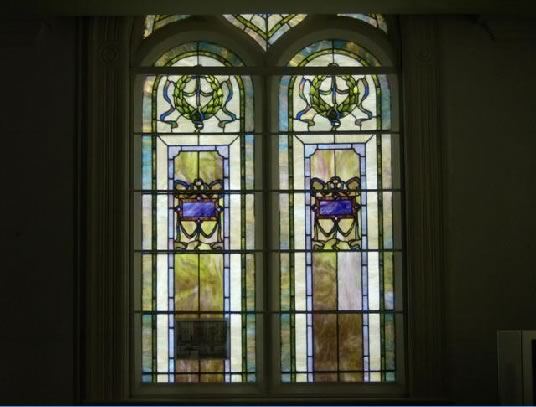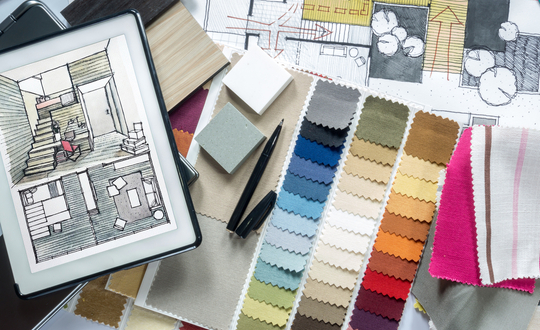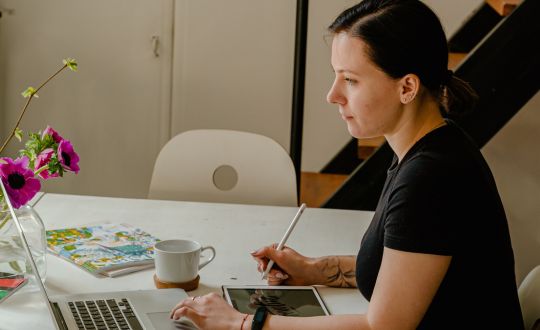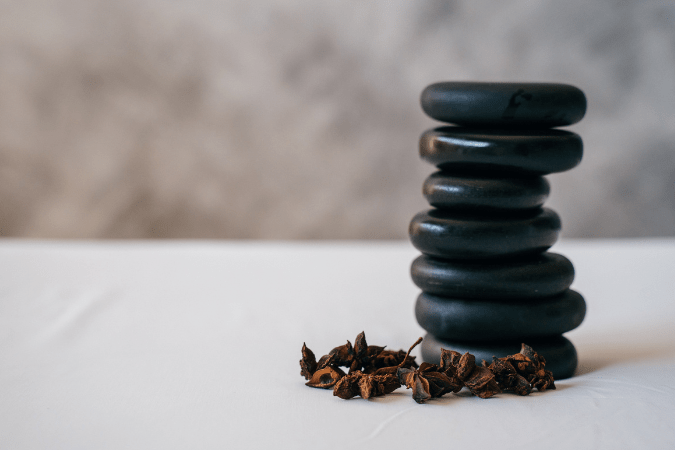Fabulous design. Cutting edge looks. Interesting twists in color, fabric, and texture. These are all elements inherent in design that's ecologically sound. Yes, your creativity can have free reign even as you make choices that help protect the planet. Increasingly, manufacturers are creating products that have minimal impact on the environment, whether because they're made from organically-grown cotton or because they're made with renewable resources. We think environmentally friendly design is so important that we recently added a Green Design lesson to the NYIAD Complete Course in Interior Design.
In our "Decorating Green" column we'll look at a sustainable, low-impact element of design in each issue of "Designer Monthly." We hope these articles will help us all help the planet and the many creatures that share it with us.
The Green movement has brought recycling, re-using, and reducing waste into the 21st century with all kinds of great Green design products. The newest addition to the “Greening” of America is composting: once a smelly, messy prospect best left to organic gardeners, composting can now be done even in the most elegant, urban homes. To find out more, we interviewed Holly Rae Taylor, founder and owner of Home Ecology, a store providing Green products for the home. Her answers make it clear why Taylor is known as a “radical composter.” Her argument for pushing Green design into the future is so compelling, we’re running the interview here.
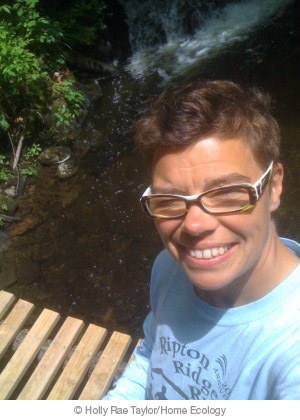
Taylor opened the store, based in Vermont with a booming on-line presence, in August, 2009. Prior to this, she held a position as general manager of a large- scale commercial composting facility. She currently has four employees, and expects her business to continue to expand.
Designer Monthly: Why did you want to open the store?
Taylor: I founded Home Ecology because banana peels aren't garbage. In my early twenties, having just graduated from Marlboro College with a BS in plant physiological ecology, I was impressed by the book Deep Ecology: Living as if Nature Mattered, by Devall and Sessions. It was a multi- disciplinary/spiritual approach to what I had just studied from a scientific perspective. For the first time ever it had me asking myself very grounding questions like, “where does my water come from?” And, “what is the soil like around my home?” I had studied the ecology of other organisms but had never really considered the ecology of my own life.
Fifteen years later I was running a large scale composting facility where I got my title “Compost Maven.” My current company, with co-owner, Anne Taylor, is a shop called Home Ecology, and our tagline is “Living as if Composting Mattered.” Our founding idea is that living as a part of a natural ecosystem, where energy and nutrients flow in cycles, starts at home. Composting is at the nexus of ecological living because it transforms waste into a resource and it keeps the food cycle churning. Home Ecology focuses on the food cycle of growing, preparing and preserving food, then composting the kitchen scraps. Unlike recycling plastic or creating renewable energy (both important parts of sustainability), food is something that everyone relates to daily and in a personal way. I started this company because I wanted to use my experience and passion to help people live as if nature mattered.

DM: What is the goal of the store?
Taylor: Our goal is to help people live more ecologically by offering good ideas and good goods. We select our products with a lengthy and earnest list of criteria in hand. Not every product has to hit every criterion, but it's got to make the big ones. That list includes ethical manufacturing and fair trade, and we ask: is it local? Compostable? recyclable? durable? fabulous? does it help reduce waste at home or on the go? does it help you reduce your carbon footprint? grow food? prepare whole foods? preserve food, or compost? Is it a healthy, natural, organic alternative to what is commercially available? Bottom line: is it a better option? We are constantly looking for better!
DM: Why don't more people compost?
Taylor: Beyond the fears, myths, and misperceptions, I think the main thing is logistics: we just don't have the education and infrastructure in this country to make composting a universal no-brainer. Not yet, anyway. Some regions in the U.S. don't even recycle cans and bottles, much less compost apple cores and ham bones! Logistics are a big reason, but those are easy to work out. Composting is all about management—a complete system includes a countertop or undercounter holding container, a compost bin or a local program to which you can bring it, and then managing the compost, if you do it yourself.
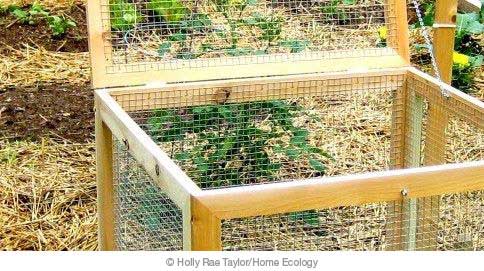
DM: What's so great about composting?
Taylor: The answer to this question could fill volumes. Composting is on a par with gardening and strolling around a farmers’ market in terms of its power to induce a sense of well-being and connectedness. The big picture is that it is an act which puts us squarely back into the natural world where nutrient cycling is ubiquitous, constant, and ultimately, the underlying narrative that drives the world. Composting keeps organic material in the soil where it belongs.
The flip side to that is that composting keeps organics out of landfills, a place devoid of oxygen where rotting food scraps creates methane, a potent greenhouse gas. Soils that are supplemented with compost are healthier. Healthy soils grow healthy, nutritious plants that do not need as much fertilizer or pesticides. Every gardener knows that first things first means growing soil, then plants.
DM: How can composting be made more appealing?
Taylor: It's all about making it simple, odor-free, and convenient. When it comes to composting, a little good design can go a long way. To begin with, there are several nice countertop containers on the market that have odor filters built into the lid. The bin itself is a design choice based on how, what, and where you wish to compost. In Mary Appelhof's seminal manual, Worms Eat My Garbage, she illuminates every aspect of worm composting including several bin designs. My favorite is the coffee table that doubles as a worm bin. That is to say, you can design and incorporate your personal ecology in creative and convenient ways. A simple Web search will bring up many resources to choose from to get started or to troubleshoot. My Web site, Home Ecology: Your Green General Store has a contact form. Since composting is my favorite topic, I encourage people to ask any composting question they may have.
DM: Doesn't it create a big, smelly mess?
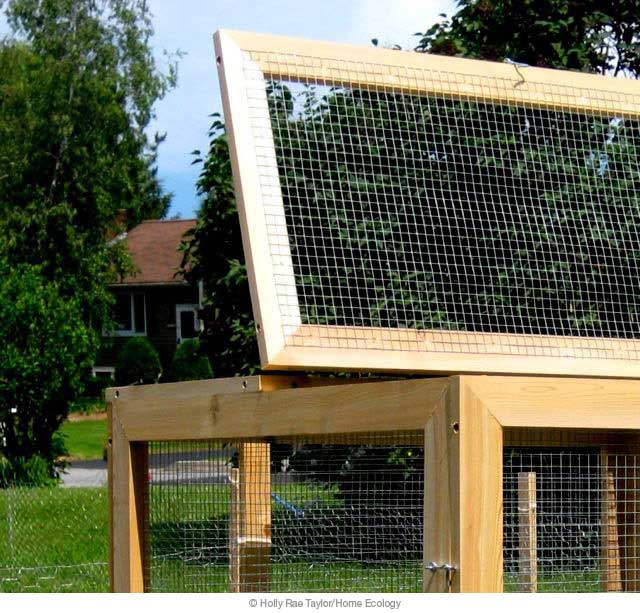
Taylor: In short, no. And then again, yes. It turns out that life is a smelly mess. No doubt about it. But composting is all about management. You could say that having a dog is a big, smelly mess. And it would be quite true if you did nothing to manage it; it’s the same with compost. Composting is like having a pet: you feed it the proper food (browns and greens), you give it the appropriate home (the bin of your choice), and you manage its health and hygiene (to every pile, turn, turn, turn!). Sometimes the specter of composting can be great but the reality is it's no big deal. The key is to have a good, convenient system that works for you.
DM: How can composting fit in with apartment life?
Taylor: Easy. Thanks to high-tech and to low-tech, city and suburban dwellers have options! There are automatic electric composters (think small appliances that are bigger than a breadbox and smaller than a trash can) that fit in the kitchen, laundry room, or balcony. Then there are worm bins which are as low-tech as it gets--and believe it or not they are odor-free. Many cities are starting to have community composting programs where you can bring your scraps to be composted. I recommend nice, big, five-gallon buckets with lids to transport scraps to those places. Curbside pickup is beginning to happen in some localities.
DM: How can it fit in with modern, contemporary design?
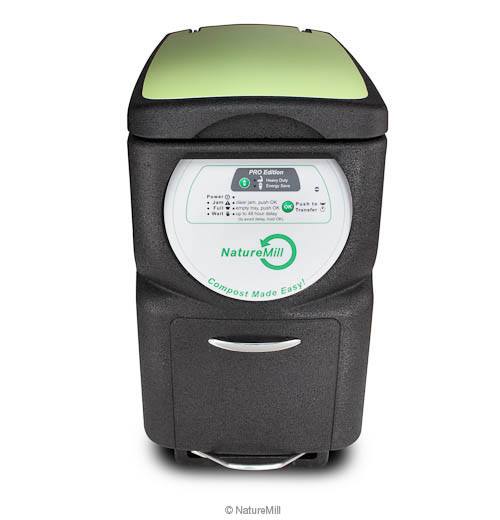
Taylor: The sleek NatureMill composters are perfect for a modern home. They're attractive and can slot into a small space. Counter-top containers that hold food scraps are attractive and have built-in, replaceable odor filters.
DM: Do you feel sometimes that it’s too late, that such a small thing as one person composting can’t make enough of a difference?
Taylor: No way. Just ask anyone who's on a waiting list for a community garden plot or a CSA membership. I feel that we are in wonderful time of reconnecting with community and with natural cycles. We're discovering how good it feels to DIY, to get our hands in the dirt, to raise a couple of chickens, or to go to a farmers’ market for food and flowers. Home Ecology sprang from the same collective spirit that started the White House organic garden, that turns aging, outdated infrastructure in cities, such as the High Line in Manhattan, into green spaces. So I feel very optimistic.



